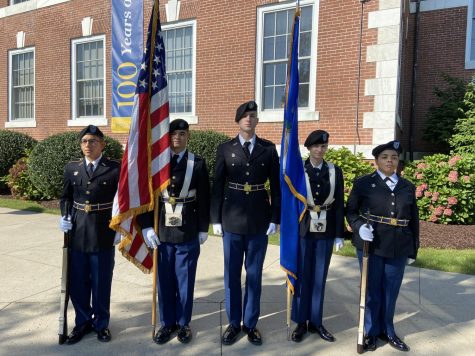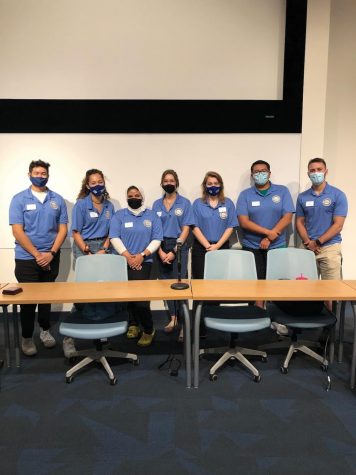UNH, Yale Working on Project to Reduce Gun Violence
By UNH Today
UNH and Yale University will be working with the U.S. attorney general on a project to reduce gang and gun violence in Connecticut’s cities.
The program, announced by Attorney General Eric Holder, U.S. Attorney David Fein and Connecticut Gov. Dannel Malloy last Tuesday, will initially focus on New Haven, Bridgeport and Hartford.
Dubbed Project Longevity, the program will be funded with federal, state and local funds and is based on a model that has been successful in reducing gun violence in multiple neighborhoods across the country. This will be the first time the strategy is being implemented statewide.
Project Longevity uses a strategy that has shown violence can be reduced dramatically when community members and law enforcement join together to directly engage with these groups and clearly communicate a community message against violence, a law enforcement message about the consequences of further violence and an offer of help for those who want it.
To accomplish this, law enforcement, social service providers and community members are recruited, assembled and trained to engage in a sustained relationship with violent groups.
“Project Longevity will send a powerful message to those who would commit violent crimes targeting their fellow citizens that such acts will not be tolerated and that help is available for all those who wish to break the cycle of violence and gang activity,” said Holder.
“On the state level, I have directed my administration to focus our criminal justice resources on urban violence,” Malloy said. “We agree that no strategy will be effective without the support of the community. This means parents, clergy, neighborhood leaders, grandmothers, grandfathers, aunts, uncles – everyone working toward one goal. We are working to regain the trust of the African American and Latino communities. We need their help. The lives of these young people are too valuable not to act.”
“After more than a year of hard work and preparation by so many public and private partners, I am pleased to announce Project Longevity, our statewide anti-violence initiative,” said U.S. Attorney Fein. “Many dedicated people and organizations have come together to support this proven strategy to reduce gang and gun violence through focused deterrence.”
Project Longevity is based on the Group Violence Reduction Strategy developed by the Center for Crime Prevention and Control at John Jay College of Criminal Justice in New York. The research behind the strategy, first implemented in Boston as “Operation Ceasefire” in the mid-1990s, has found that violence in troubled neighborhoods is caused predominantly by a small number of people who are members of street gangs, drug crews and other identified groups.
These groups, whose members typically constitute less than a half a percent of a city’s population, often have little organization, hierarchy or common purpose, and commit violent acts primarily for personal reasons, not to achieve any economic gain or other advantage. The Group Violence Reduction Strategy, which also has been deployed in areas of Chicago, Cincinnati, Providence, R.I., and elsewhere, has resulted in a 40 to 60 percent reduction in group-related homicides in certain neighborhoods.
The Rev. William Mathis, a UNH adjunct professor, has been appointed as Project Longevity’s New Haven program manager. Mathis is the pastor of Springs of Life-Giving Water Church in New Haven, an attorney and a former prosecutor.
As program manager, he is responsible for developing effective and sustainable working relationships between law enforcement, service providers and community members to insure Project Longevity’s success.
UNH and Yale will work with law enforcement to collect and analyze crime data and provide research support to identify the groups and individuals that will be contacted through Project Longevity said John DeCarlo, associate professor of criminal justice at UNH. Many of these individuals are already known to law enforcement and/or are under the supervision of probation or parole officers.
Other participating Justice Department agencies in Project Longevity include the FBI; Drug Enforcement Administration; the Bureau of Alcohol Tobacco, Firearms and Explosives; and the U.S. Marshals Service.
News of the partnership appeared in the Houston Chronicle, Seattle Post Intelligencer, New Haven Register and Hartford Courant, among other regional and national media outlets.








